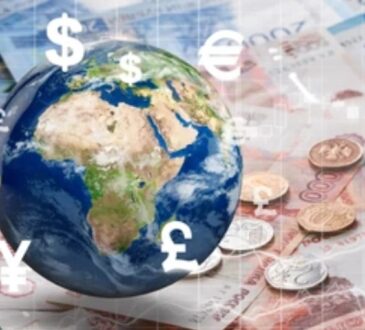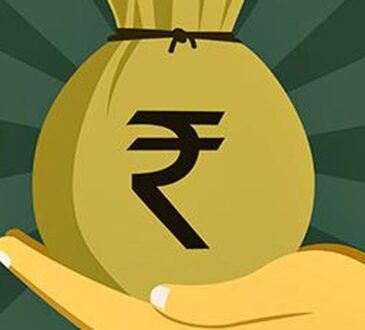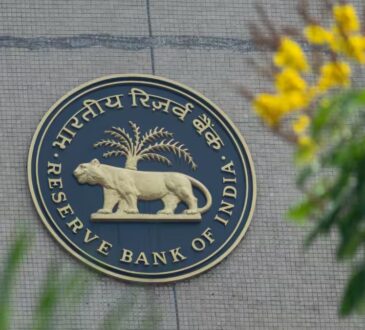This is CNBC’s live blog covering Asia-Pacific markets.
Asia-Pacific stocks mostly climbed after China’s central bank and financial regulators announced sweeping plans to cut key interest rates in an effort to shore up growth in the face of trade worries.
Hong Kong’s Hang Seng index rose 0.5% while mainland China’s CSI 300 climbed 0.61% to close at 3,831.63.
Japan’s benchmark Nikkei 225 lost 0.14% to close at 36,779.66 while the Topix rose 0.31% to close at 2,696.16. South Korea’s Kospi added 0.55% to close at 2,573.8 while the small-cap Kosdaq lost 0.13% to close at 722.81.
Australia’s benchmark S&P/ASX 200 climbed 0.33% to close at 8,171.3.
U.S. Treasury Secretary Scott Bessent and trade representative Jamieson Greer are set to meet with their Chinese counterparts this week.
Asian currencies strengthened against the dollar amid depressed confidence in the greenback.
“We are seeing a clear dislocation in terms of the USD’s normal trading relationships, and this correlation breakdown suggests that investors are reducing their exposures to the USD and repatriating capital to their home markets,” said Peter Kinsella, global head of forex strategy at Union Bancaire Privee.
Global non-U.S. investors are reducing allocations to the dollar and dollar-denominated assets, added the forex strategist. “The moves that we are seeing in several Asian currencies reflect this phenomenon, and I expect that it will continue.”
Bessent and Greer are set to hold talks with Chinese officials in Switzerland this week to address trade and economic issues.
The discussions mark a potential turning point in de-escalating the trade tensions ignited by Trump, who last month raised tariffs on Chinese goods to 145% while easing levies on most other countries. In response, China imposed heavy tariffs on U.S. products.
U.S. stock futures advanced Tuesday night as investors monitored the latest updates on U.S. trade negotiations and looked toward the Federal Reserve interest rate announcement expected Wednesday afternoon. Dow Jones Industrial Average futures added 280 points, or 0.7%. S&P 500 futures popped 0.8%, while Nasdaq 100 futures rallied 1%.
Overnight stateside, the three major averages closed lower. The Dow Jones Industrial Average lost 389.83 points, or 0.95%, to close at 40,829.00. The S&P 500 shed 0.77% and settled at 5,606.91, and the Nasdaq Composite dipped 0.87% to end at 17,689.66. All three of the major averages posted back-to-back declines.
— CNBC’s Hakyung Kim and Pia Singh contributed to this report.
Shares of Japan trading houses climb after Berkshire Hathaway commits to investments
Shares of Japanese trading houses continued to rally Wednesday after Berkshire Hathaway CEO Warren Buffett and future successor Greg Abel said they expect to have a long-term relationship with the Japanese trading house conglomerates Berkshire invested in years ago.
Shares of Marubeni rose over 6%. Itochu climbed 3.11%, while Mitsubishi and Mitsui rose 3.77% and 2.91% respectively. Sumitomo rose 3.43%.
Japan markets were closed for the holidays on Monday and Tuesday.
In March, Berkshire hiked stakes in the five trading houses to almost 10% each.
—Lee Ying Shan
India says it carried out military strikes against Pakistan as tensions spiral after Kashmir killings
India early on Wednesday said its armed forces had conducted strikes against Pakistan and what it calls Pakistan-occupied Jammu and Kashmir, targeting “terrorist infrastructure.”
“Our actions have been focused, measured and non-escalatory in nature. No Pakistani military facilities have been targeted,” the country’s Ministry of Defence said.
The operation, which targeted nine sites, follows a militant attack in Pahalgam, Jammu and Kashmir, in which 26 people were killed last month, the ministry said.
“We are living up to the commitment that those responsible for this attack will be held accountable,” the statement said, while adding that India had shown “considerable restraint in selection of targets and method of execution.”
India’s Nifty 50 rose 0.18% at the open.
Read the full story here.
—Vinay Dwivedi, Lim Hui Jie
Asian currencies appreciate amid depressed confidence in the U.S. dollar
Asian currencies strengthened against the dollar amid depressed confidence in the greenback.
The Taiwanese dollar, which saw a historic surge that clocked multi-decade gains on Monday, strengthened 0.93% to 30.3225 per dollar, as of 10.15 a.m. local time.
The South Korean won strengthened 1.54% to 1,395.96 against the greenback after the local market resumed trading following a holiday.
“Looks like the Korean won is catching up with other Asian peers like the Taiwan dollar,” said Jeff Ng, head of Asia macro strategy at Sumitomo Mitsui Banking Corporation. Ng added that other regional currencies are set to benefit from de-dollarization and diversification.
The Japanese yen appreciated 0.46% to 143.06 against the dollar. Similarly, the Australian dollar strengthened to around 0.6487 against the dollar.
—Lee Ying Shan
China, Hong Kong equities climb after PBOC reduces policy rate
Hong Kong and Chinese equities advanced after China’s central bank unveiled plans to cut key interest rates.
Hong Kong’s Hang Seng Index rose as much as over 2% at the open but pared some gains to trade 1.62% higher as of 9.42 a.m. local time.
Similarly, mainland China’s CSI 300 climbed 0.76%.
The Chinese offshore yuan was last seen trading at 7.2164 against the dollar. China’s 10-year government bond yield was at 1.628%.
—Lee Ying Shan
China to cut key rates by 10 points, bank reserve requirement by 50 points in bid to boost economy
China’s central bank and financial regulators announced sweeping plans on Wednesday to cut key interest rates in an effort to shore up growth in the face of trade worries.
China will cut the seven-day reverse repurchase rates by 10 basis points to 1.4% from 1.5%, the People’s Bank of China Governor Pan Gongsheng said at a press briefing. That will bring down the loan prime rate, the main policy rate, by around 10 basis points, the governor said.
The central bank will also lower the reserve requirement ratio, which determines the amount of cash banks must hold in reserves, by 50 basis points, unleashing additional liquidity of 1000 billion yuan ($ 138.6 billion) to the market.
Read the full story here.
—Anniek Bao
Trump officials Bessent and Greer to meet with Chinese counterparts on trade, economic issues
Treasury Secretary Scott Bessent and U.S. trade representative Jamieson Greer will meet with their Chinese counterparts in Switzerland this week to discuss economic and trade matters, their offices announced Tuesday.
The meetings appear to be a major first step for Washington and Beijing to potentially resolve an ongoing trade war ignited by President Donald Trump.
Trump last month ratcheted up tariffs on Chinese imports to 145% while scaling back so-called reciprocal tariffs on almost all other U.S. trading partners. China, which is one of the U.S.’s largest trading partners, retaliated with steep tariffs on U.S. goods.
Read the full story here.
—Kevin Breuninger
Market could hit new lows even if Trump dials back China tariffs, Paul Tudor Jones says

Paul Tudor Jones speaking at the World Economic Forum in Davos, Switzerland, on Jan. 21, 2020.
Billionaire hedge fund manager Paul Tudor Jones said on CNBC’s “Squawk Box” that the stock market could set new lows for the year, even if President Donald Trump backs down from the current levels of tariffs on China.
“For me, it’s pretty clear. You have Trump who’s locked in on tariffs. You have the Fed who’s locked in on not cutting rates. That’s not good for the stock market,” he said.
“We’ll probably go down to new lows, even when Trump dials back China to 50%,” the hedge fund manager added.
The S&P 500’s lowest close this year was 4,982.77 on April 8.
— Jesse Pound




